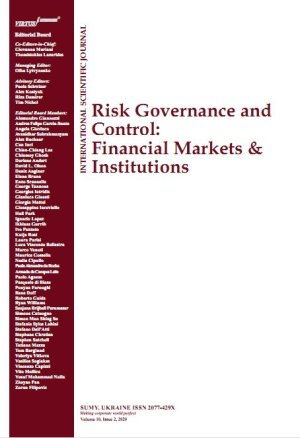
RISK GOVERNANCE: EXPERIENCE OF ISLAMIC BANKS
Download This ArticleAbstract
Risk governance has evolved tremendously in the banking industry. Risk governance recommends the imperative roles of Chief Risk Officer (CRO) to oversee risk. This study explores risk governance influence over the Islamic banks performances. Multivariate analysis techniques measure simultaneously via Structural Equation Modelling (SEM). This study employed cross-sectional sample of 200 Islamic banks across 21 countries for the year 2014. To examine risk governance and Islamic banks performance, the study captures seventeen variables developed from risk management and corporate governance (ROA, ROE, Profit Margin, CRO, Shariah committee member, CEO, board size, remuneration meeting, credit rating, external audit, accounting standard, loan loss provision, capital adequacy ratio, total deposit ratio, GDP, central bank lending rate and inflation). The simulation result reveals, risk governance act as mediating variables towards Islamic banks performance. This study has practical and significance contribution for Islamic banks to understand risk governance, aligning with the fundamental risk management and corporate governance.
Keywords: Risk Governance, Risk Management, Corporate Governance, Islamic banks, Structural Equation Model
How to cite this paper: Rahim, S. R. M., Mahat, F. (2015). Risk governance: Experience of Islamic banks. Risk governance & control: Financial markets & institutions, 5(2), 31-40. https://doi.org/10.22495/rgcv5i2art4



















